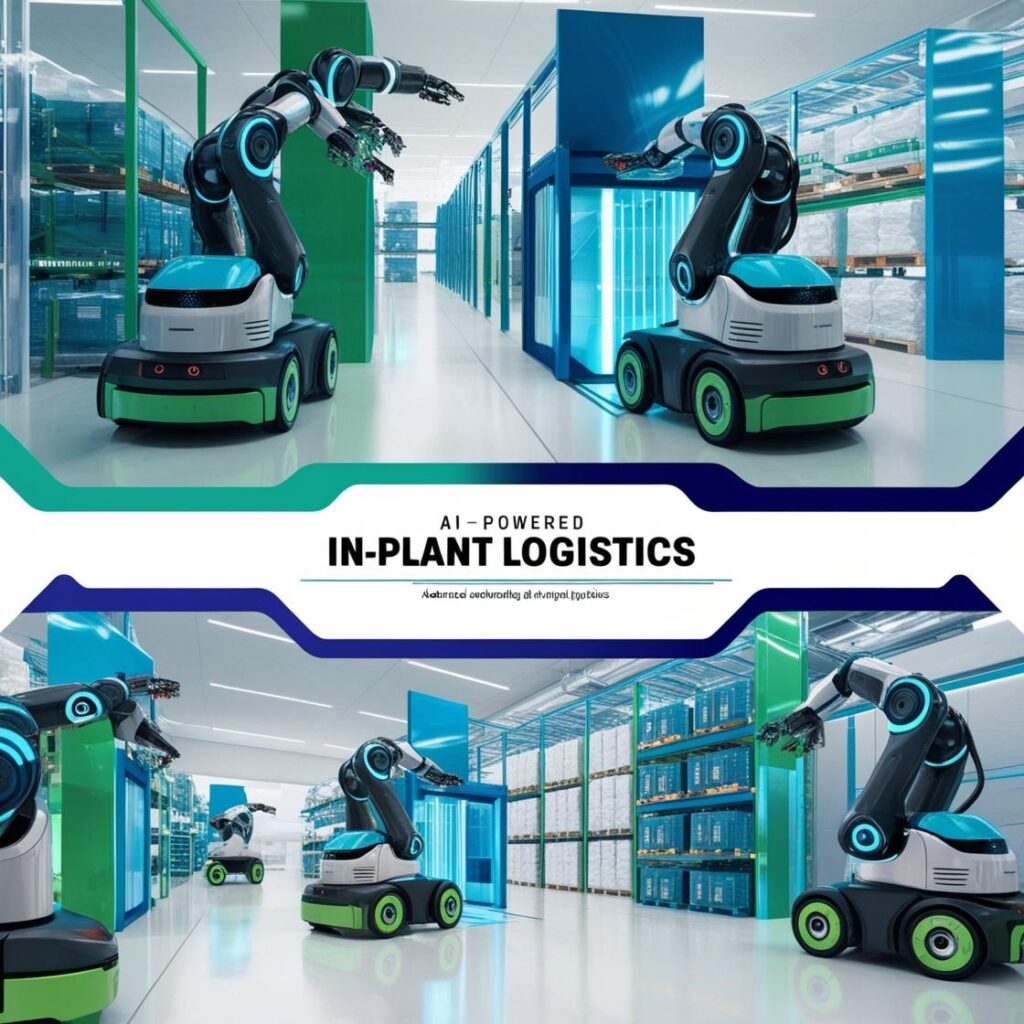The integration of AI into in-plant logistics is revolutionizing how materials and goods are handled within industrial facilities. AI technologies are enhancing efficiency, accuracy, and safety in manufacturing plants, warehouses, and other operational settings, driving innovation across industries such as automotive, electronics, and consumer goods.
Daifuku Co., Ltd. (Japan), JBT (US), KION GROUP AG (Germany), KUKA AG (Germany), and Toyota Industries Corporation (Japan) are the top players in the in-plant logistics market. These in-plant logistics companies boast in-plant logistics trends with a comprehensive product portfolio and solid geographic footprint.

The Role of AI in In-Plant Logistics
AI is being employed to optimize various aspects of in-plant logistics, including:
- Material Flow Optimization: AI algorithms analyze real-time data to streamline the movement of raw materials and finished products, reducing bottlenecks.
- Autonomous Material Handling: AI-powered automated guided vehicles (AGVs) and autonomous mobile robots (AMRs) are transforming material transportation within plants, ensuring timely deliveries without human intervention.
- Inventory Management: AI enables predictive analytics for inventory levels, minimizing stockouts and overstocking, and improving supply chain resilience.
- Task Prioritization: AI systems allocate tasks to resources based on real-time operational needs, improving efficiency.
Applications in Key Industries
Automotive Industry: AI-powered solutions support just-in-time delivery of components, crucial for assembly lines. Robots with vision systems identify and deliver parts accurately.
- Electronics Manufacturing: AI automates the movement of delicate components, ensuring precision and reducing handling errors.
- Consumer Goods: Real-time analytics optimize packaging and shipping workflows, improving productivity.
Advantages of AI in In-Plant Logistics
- Increased Efficiency: Automation of routine tasks reduces delays and ensures faster material handling.
- Cost Reduction: Optimized logistics processes minimize labor and operational costs.
- Enhanced Safety: AI systems reduce human involvement in high-risk tasks, lowering workplace accidents.
- Scalability: AI solutions adapt to changing production demands, ensuring seamless scalability.
- Sustainability: Energy-efficient robots and optimized routes reduce the environmental impact of logistics operations.
AI’s Impact on North America’s Logistics Sector
In North America, industries are rapidly adopting AI-driven in-plant logistics solutions to meet the growing demand for efficiency and flexibility. The region’s focus on smart manufacturing and automation positions it as a leader in implementing these advanced systems. Key players are leveraging AI to enhance competitiveness, improve operational sustainability, and ensure compliance with stringent industry standards.
AI in in-plant logistics is transforming internal operations, making them smarter, faster, and more cost-effective. With its ability to automate complex processes and provide actionable insights, AI is set to redefine how industries handle their internal logistics, delivering significant benefits across various sectors.
